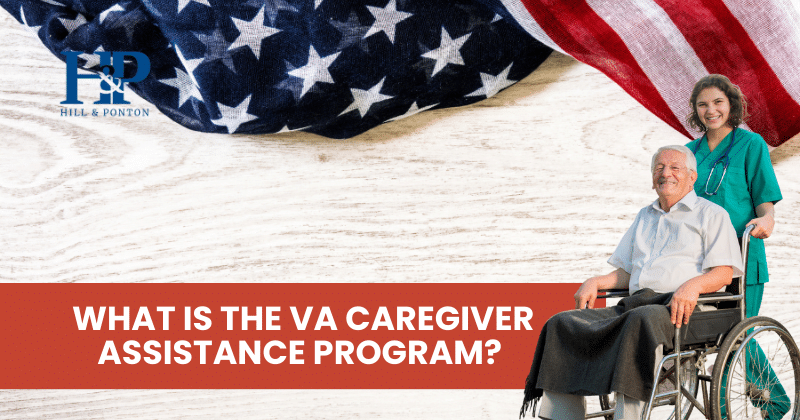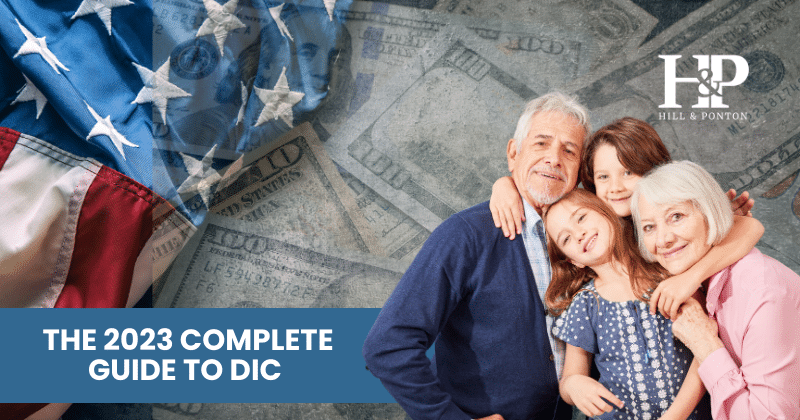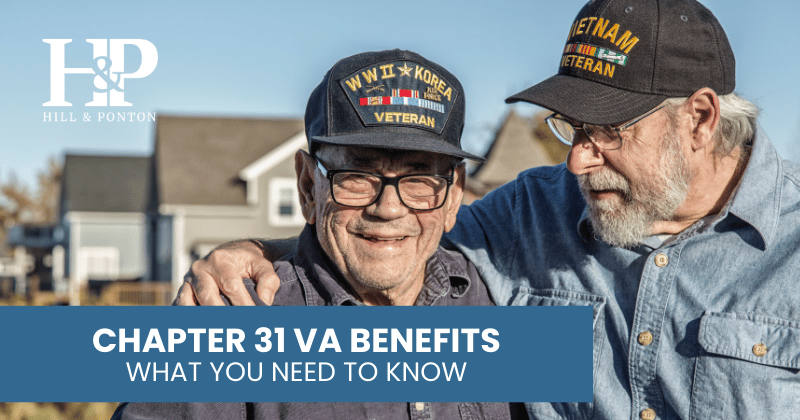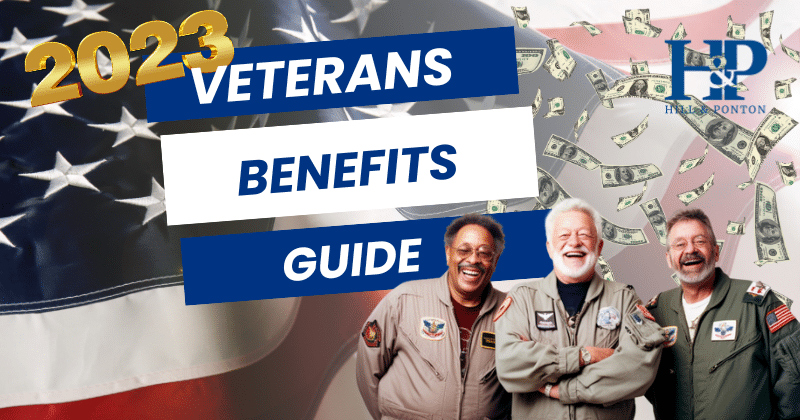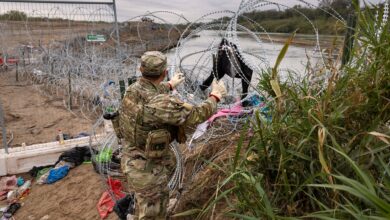9 Lesser Known Money-Saving Veteran Benefits You Need to Know About

As a distinguished veteran who has bravely served our country, you’ve earned more than just our profound gratitude.
A whole host of benefits are available to support you in your civilian life.
These benefits can go a long way into easing your financial journey and providing money for disabled veterans.
This blog post is all about unearthing some of the benefits you may not be fully aware of yet.
The one’s we list here are designed to support you in a variety of ways, from assisting with housing and medical care, to even supporting you in starting your own business.
Let’s dive in and discover these unclaimed benefits together!
Don’t leave money on the table you rightfully deserve.
The List of 9 Benefits You Should Know About
- Long Term Care
- Caregiver Support
- Death Benefits
- Non-College Degree Programs/Certificates
- Free Tax Preparation
- Life Insurance
- Mortgage Assistance
- Business Benefits
- Unclaimed Funds
1. Long-Term Care
One of the less-known but significant benefits available to veterans is assistance with long-term care.
Long-term care can be a considerable expense, often overlooked until the need arises.
As a veteran, you have earned certain privileges that can greatly reduce these costs.
The Department of Veterans Affairs (VA) provides various long-term care services to eligible veterans, including:
- Home health care
- Adult day health care
- Respite care
- Hospice care
- Nursing home care
These benefits extend to both the veterans themselves and, in certain cases, their families.
Home Health Care and Adult Day Health Care
For veterans who prefer to stay at their homes, the VA offers home health services, including:
- Nursing care
- Physical therapy
- Help with daily tasks (bathing, dressing, and meal preparation)
Adult Day Health Care can also be an excellent option for veterans who need care during the day, providing social activities, companionship, and essential health services.
Respite Care
Taking care of a loved one can be rewarding, but it can also be demanding.
The VA provides respite care, offering a temporary break to caregivers.
This service can be utilized in your home, at a VA community living center, or in adult day health care centers.
Hospice Care
For veterans diagnosed with a terminal illness, the VA provides compassionate hospice care.
This service focuses on enhancing a veteran’s quality of life by managing pain and symptoms and providing emotional and spiritual support.
Nursing Home Care
Veterans with complex health care needs may qualify for nursing home care, provided in VA nursing homes and state veterans homes throughout the country.
Eligibility for these services is based on various factors such as:
- Military service history
- Disability status
- Income level
- Available resources (to name a few)
2. Caregiver Support
Veterans may return home needing care due to service-connected injuries, illnesses, or aging.
Thankfully, VA recognizes the critical role caregivers play in supporting veterans.
The VA’s Caregiver Support Program offers a wealth of resources to help caregivers succeed in their crucial roles.
This includes access to a Caregiver Support Coordinator (CSC), a licensed professional who can connect caregivers with a range of services designed to help them provide the best care for the veteran, while also taking care of themselves.
The largest among these is the Program of Comprehensive Assistance for Family Caregivers (PCAFC).
This program offers many benefits including:
- Monthly stipend
- Access to healthcare benefits through CHAMPVA
- Caregiver training
- Mental health services
- Respite care
To learn more about this program, see our guide below.
3. Death Benefits
The VA ensures that even in death, the honor, service and dedication of our veterans is not forgotten.
They provide several death benefits, including burial and funeral benefits, which help alleviate some of the financial burdens associated with laying a veteran to rest.
If the veteran chooses to be buried in a national cemetery, they and their dependents are entitled to, at no cost:
- A grave site
- Opening and closing of the grave
- Perpetual care
- A government headstone or marker
- A burial flag
- A Presidential Memorial Certificate
Dependency and Indemnity Compensation (DIC), is also provided to surviving spouses, children and dependent parents, if the veterans death resulted from a service-connected injury or disease.
The DIC is a monthly benefit that can help support the family left behind.
For more information about DIC, check out our extensive blog post below.
4. Non-College Degree Programs/Certificates
Higher education isn’t the only path toward a fulfilling and successful career.
Non-college degree programs or certificate programs offer practical, hands-on training in various fields, and the VA extends it’s support to veterans interested in such opportunities.
Post-9/11 GI Bill
One of the significant benefits available to veterans is the Post-9/11 GI Bill, which covers more than just traditional four-year degree programs. It also extends to the following:
- Vocational and technical training programs
- Apprenticeships
- On-the-job training
- Flight training
- Correspondence training
- Licensing and national testing programs
- Entrepreneurship training
- Continuing education programs
These programs can lead to non-college degrees or certificates in fields such as HVAC repair, truck driving, emergency medical training, computer networking and more. These industries are also mostly all high-demand sectors, meaning your training could directly lead to gainful employment.
To learn more about the Post-9/11 GI Bill, see our article below.
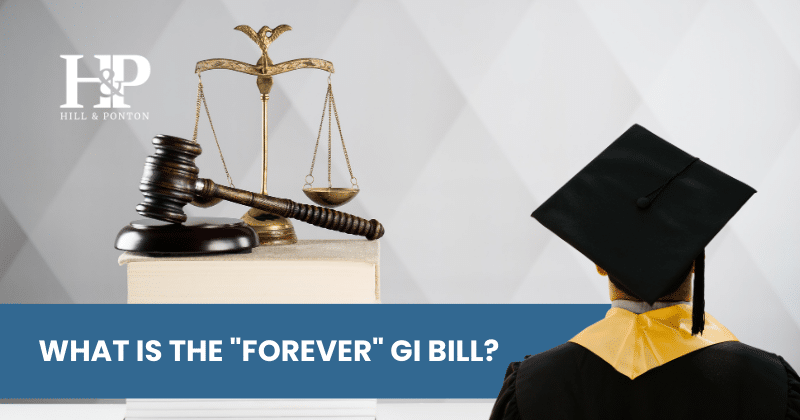
The VA’s Vocational Rehabilitation and Employment (VR&E) services are another excellent resource.
This program assists veterans with service-connected disabilities by offering counseling, job search assistance and other support to prepare for, obtain and maintain suitable jobs.
To learn more about VR&E, check out the post below.
5. Free Tax Preparation
As Benjamin Franklin famously wrote, “in this world, nothing can be said to be certain, except death and taxes.”
However, as a veteran, you have access to resources that can simplify the tax preparation process and help you maximize your returns, free of charge.
The Volunteer Income Tax Assistance (VITA) program is an IRS initiative that provides free tax help to people who make $75,000 or less, persons with disabilities, the elderly, and limited-English-speaking taxpayers.
Most VITA sites also offer their services to veterans, regardless of income.
IRS-certified volunteers receive training to help prepare basic tax returns in communities across the country.
Additionally, the Armed Forces Tax Council (AFTC) oversees the operation of military tax programs worldwide, and provides free tax advice, tax preparation and assistance to military members and their families.
Remember, if you are a veteran with a disability rating, your disability benefits are non-taxable, which means they need not to be included as income on your taxes.
And, if you’re running a small business, the IRS offers the Veterans Business Outreach Center (VBOC) Program.
VBOCs provide veterans with free workshops, online training, business plan workshops and more, to help you understand your tax obligations as a business owner.
6. Life Insurance
As a veteran, securing life insurance is an essential step to ensure financial stability for your loved ones in the event of your passing.
VA provides a few life insurance options to help provide this peace of mind.
Servicemembers’ Group Life Insurance (SGLI)
SGLI is a low-cost group term life insurance program for service members.
Coverage can be extended if the servicemember is totally disabled at separation.
Veterans Group Life Insurance (VGLI)
VGLI allows veterans to convert their SGLI to a civilian program of lifetime renewable coverage after separation from service.
This is especially beneficial for veterans who may have medical conditions that could make it challenging to get insurance from commercial companies.
Family Servicemembers’ Group Life Insurance (FSGLI)
FSGLI is a program extended to the spouses and dependent children of members insured under the SGLI program.
It provides up to a maximum of $100,000 of insurance coverage for spouses, not to exceed the amount of SGLI the insured member has in force, and $10,000 for dependent children.
Service-Disabled Veterans Insurance (S-DVI)
The S-DVI program is designed to meet the insurance needs of certain veterans with service-connected disabilities.
It is available in a variety of permanent plans as well as term insurance.
Veterans’ Mortgage Life Insurance (VMLI)
VMLI provides mortgage life insurance protection to disabled veterans who have been approved for VA Specially Adapted Housing (SAH) grants.
7. Mortgage Assistance
Navigating the world of home loans and mortgages can be a complex task, but as a veteran, you have unique options available to you to make the process smoother and more affordable.
The VA’s Home Loan Guaranty Benefit, also known as a VA loan is made by private lenders, but the VA guarantees a portion of the loan.
This enabled the lender to provide you with more favorable terms, and is not a one-time use benefit – it can be reused for purchases of primary residences and even for refinancing existing home loans.
VA loans are particularly attractive because they often require no down payment, and competitive interest rates.
There is also no requirement for private mortgage insurance, a cost that can significantly increase monthly mortgage payments with other types of loans.
Additionally, the VA provides specially adapted housing grants for veterans with certain severe service-connected disabilities.
These grants help veterans adapt or purchase a home that will accommodate their disability and allow them to live more independently.
8. Business Benefits
The entrepreneurial spirit is strong among veterans, and there are several benefits and resources in place to support those who wish to start or grow their own business.
The Office of Small and Disadvantaged Business Utilization (OSDBU) is part of the VA.
Its purpose is to help veteran entrepreneurs gain increased access to economic opportunity.
OSDBU provides resources and tools for starting a business, securing contracts and getting financing.
One of the biggest advantages veterans have in business is the ability to apply for veteran-only contracts.
The federal government aims to award at least 3% of all federal contracting dollars to veteran-owned small businesses each year.
That’s a lot of money potentially on the table for your business.
Moreover, the Small Business Administration (SBA) has set up the Office of Veterans Business Development.
This office provides numerous programs and services to meet the needs of budding veteran entrepreneurs, including training, counseling, mentorship and access to capital.
The SBA’s Veterans Advantage Program offers fee relief on loans to businesses that are at least 51% veteran-owned.
Remember, there are lots of benefits out there and money for disabled veterans that you are entitled to.
9. Unclaimed Funds
It’s an unexpected but pleasant surprise when you discover you have unclaimed money.
Billions of dollars are sitting around in forgotten savings accounts, uncashed checks, insurance policies, and even utility deposits.
As a veteran, you may have money waiting for you that you don’t even know about.
The National Association of Unclaimed Property Administrators (NAUPA) oversees the process of returning these unclaimed funds to their rightful owners.
Each state has a department responsible for these funds.
As a veteran, you may have moved around a lot during your service, which increases the possibility of unclaimed funds being in your name in several states.
You can search for unclaimed funds in your name by visiting the NAUPA website or your state’s unclaimed property website.
Most states let you search for free, and the process usually involves just entering your name and seeing if there’s any matches.
For veterans who had a government life insurance policy and received payments, there’s also the VA’s Insurance Funds site.
If an insurance policy payment was issued and never claimed, it goes into this fund.
It’s worth checking to see if you have any unclaimed insurance funds.
Remember, these are YOUR funds.
They don’t represent a special program or a charity, they are something you earned or were entitled to and simply never received.
So make sure you take the time to check for any unclaimed funds that might be waiting for you.
For all additional benefits you may be entitled to, check out our guide below.

